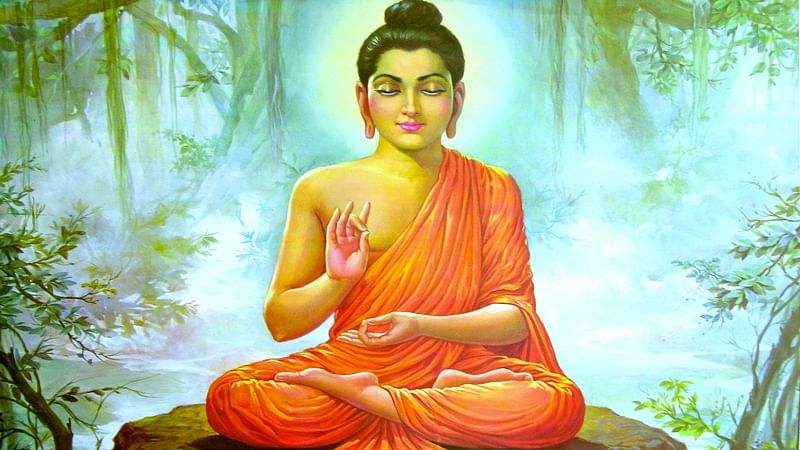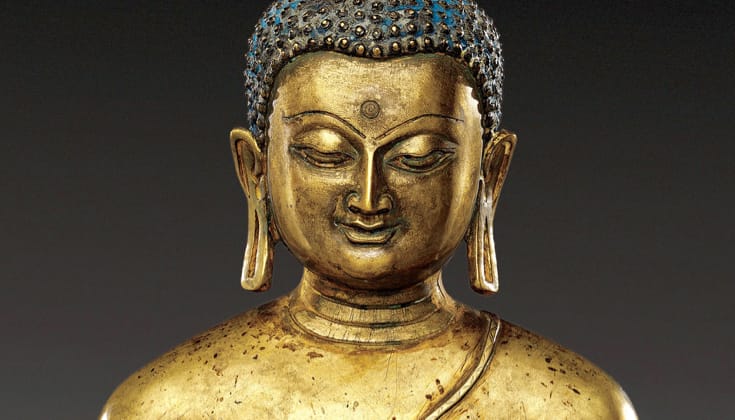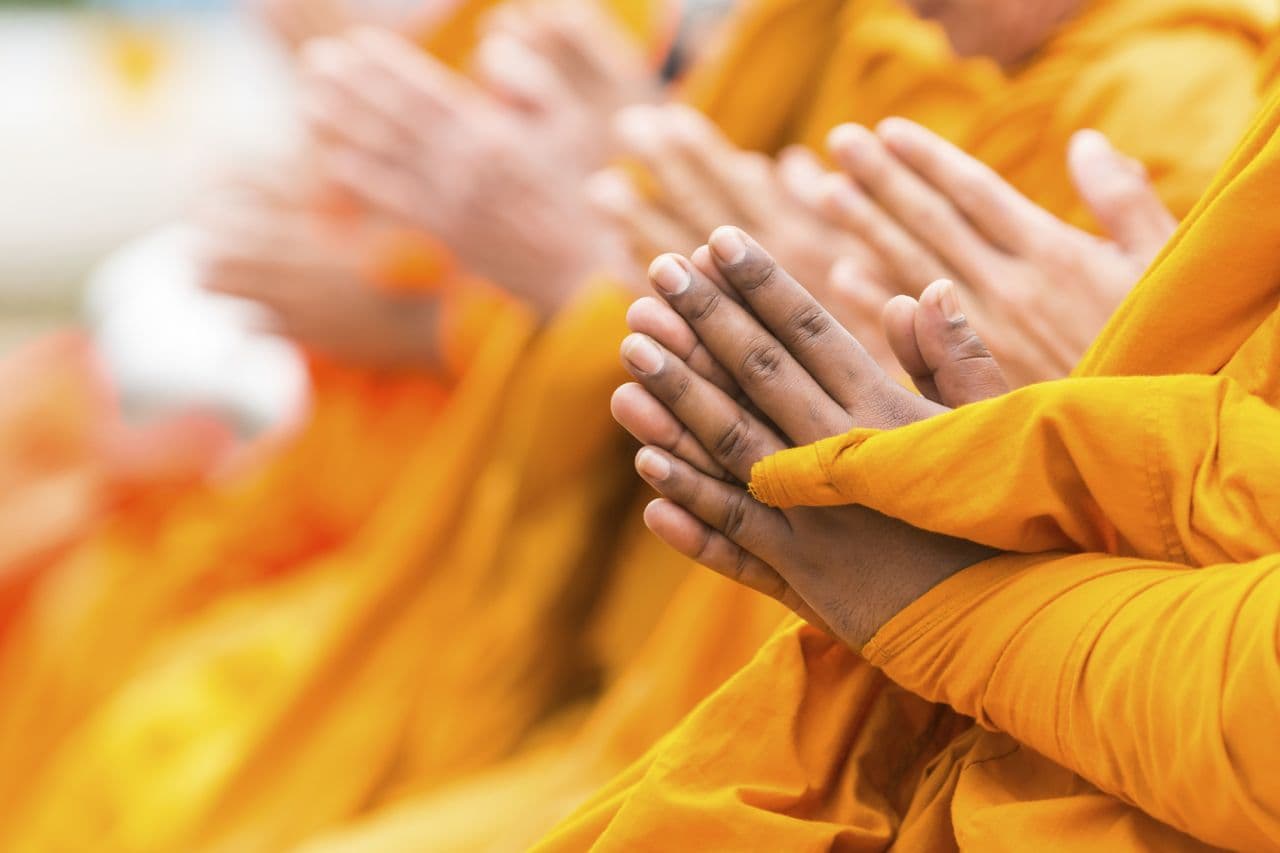The Buddhist Approach to Addiction
In the United States, there are a number of substance abuse treatment programs tied to or based on Christianity. Of course, there is nothing wrong with this; however, not all people who need treatment align with Christian beliefs or want to enroll in strongly religious programs. Fortunately, another viable option is the Buddhist approach to addiction. As one of the oldest and most popular religions in the world, there is a great deal of knowledge one can learn from Buddhism, even if they are members of other religions. This is especially true for anyone seeking new or unorthodox ways of approaching treatment for addiction.
Buddhism 101: The life of the Buddha

As with many religions, understanding Buddhism requires understanding a certain amount of history. The man called the Buddha was a man by the name of Siddhartha Gautama, who was born around 400 BCE. Although there are many accounts of the Buddha’s life, the most popular version of the story revolves around Siddhartha as a prince who experiences a spiritual awakening. As a child, Siddhartha’s father, the king, protected him from the outside world. However, in wanting to become a great ruler, Siddhartha begged his father to allow him to go out and see the kingdom. Upon exploration, Siddhartha found all the things he was shielded from as a child: sickness, aging, and death. These three facts of life caused Siddhartha to have an existential crisis, so he decided to leave the kingdom in an attempt to find spiritual peace.
After leaving, Siddhartha joined a group of ascetic monks. The monks spent the majority of their time meditating and did not engage in pleasures of any kind. The monks believed that in starving themselves physically and not engaging in earthly pleasures that they would gain spiritual enlightenment. Siddhartha stayed with the group for a few years but ultimately decided that the monks’ rejection of all pleasure was not useful and did not get him closer to enlightenment. After years in luxury at the palace and years of abstinence with the monks, Siddhartha began to see that neither extreme could help one achieve enlightenment. After 49 days of meditation underneath the Bodhi tree, Siddhartha was finally able to reach enlightenment. Through all of his consideration and experience, Siddhartha discovered and then taught the Four Noble Truths and the Eightfold Path, which serve as the foundation for the beliefs and practices of Buddhism.
The Four Noble Truths and the Eightfold Path:

The Four Noble Truths:
- Human life has suffering (aging, disease, death)
- The cause of suffering is attachment (craving impermanent things and being disappointed by their impermanence)
- There is an end to suffering
- To end suffering, one must follow the Middle/Eightfold Path (More on that below)
Life is not all pleasure. It is a mixture of both pleasure and pain. However, it is this mix that causes suffering. One only suffers because they are attached to impermanent things, people, ideas, concepts, etc. And one suffers even more when one is greedy and overindulges.
But, there is a way to end suffering. To find enlightenment, Buddha taught the Middle Path, and he expanded on how to do that with the Eightfold Path. The Middle Path is what Buddha saw as the solution between overindulgence and deprivation. Neither path brought him enlightenment and neither alleviated his suffering. It was only in living between these two ways that he was able to find the path to enlightenment. From this, he recommended to followers and seekers of enlightenment to live in moderation. However, that recommendation can only get one so far. Moderation may be the key, but it is not a guide for how to live. So, the Eightfold Path was created; it consists of ways one should live in order to reach enlightenment.
The Eightfold Path:
- Right understanding and perfect vision: this consists of acknowledging and understanding the Four Noble Truths. One must understand that everything in the world is impermanent, that nothing lasts forever.
- Right resolve or perfect emotion: acting and doing things out of love and compassion to alleviate suffering, not out of anger or revenge, which only creates and contributes to suffering.
- Right speech or perfect speech: one should be truthful and clear. One should not lie or use words to hurt people.
- Right action or perfect action: this is when one strives to be good by acting in ways that are positive. The five guidelines for right action consist of: not harming living beings, not stealing, not engaging in sexual misconduct, not lying or harming others with words, and the last, which is the most relevant when discussing addiction: not taking intoxicating substances.
- Right livelihood or perfect livelihood: one should earn a living in a morally upright way. One should make money while not engaging in anything that could be considered wrong action.
- Right effort or perfect effort: one should try to maintain a positive attitude and be constantly seeking ways to improve oneself.
- Right mindfulness or perfect awareness: this consists of one living in the moment, being present. One should not focus on the past, past mistakes, or the future. Focusing on these only brings about suffering.
- Right meditation or perfect Samadhi: one should be able to concentrate and focus. In doing so, one can see things as they truly are. In seeing things as they truly are, one can reach enlightenment.
The Buddha’s View of and Treatment for Addiction

Scholars believe the Buddha himself had an awareness of the dangers of addictive behavior and addictive substances. There are accounts of the Buddha advising his followers to avoid addictive substances and behaviors; he did so by warning of the consequences. In a similar set of guidelines, like the Eightfold Path, the Buddha advocated for people to abstain from toxins that could cloud the mind. He warned that intoxicating substances could lead to “loss of wealth, increased quarreling, susceptibility to disease, losing a good reputation, indecent exposure of the body and weakening of intellect.”
However, this was not the only type of addiction the Buddha warned against. One story tells of the Buddha using an almost modern, behavioral approach to treat a king’s overeating. At each meal, he had the king’s nephew keep him from eating his last bite of food. Then, the king’s next meal he was served only the amount of food he had eaten in the meal before. By taking a bite of his food out each time, the king gradually ate less and less, and he slowly became trained to eat smaller, healthier-sized meals. While this is not the cold-turkey detoxification most treatment centers opt for today, it is a form of cognitive behavioral therapy (CBT), which is widely used for treating substance abuse. In CBT, one is taught to identify the source of their addictive behavior and create new, healthier habits for life in recovery.
The Modern Buddhist Approach to Addiction and Treatment

Example Treatment Program in Thailand:
Today, Buddhists still follow the Buddha’s guidelines and tend to abstain from drugs and alcohol. However, as with most sets of rules, people make mistakes, and rules are broken. In response, many Buddhists have created methods and programs for those with substance use disorder. In Thailand, where there is a growing heroin epidemic, Buddhist monks admit people with addictions into their monasteries, creating what one could call a Buddhist recovery group. These people stay with the monks for anywhere from 10-28 days and receive treatment. Here, treatment consists of herbal medicines for detoxifying the body, taking a vow of abstinence, meditation, chanting, teachings on Buddhism, and even work. Much like with Western treatment, the body is detoxified, and the individual then engages in therapy to identify the source of their addiction and create new, healthier habits – like the king the Buddha helped. However, there are some differences. In a Buddhist detox, there is no use of medications like in the west. They instead use herbal teas and herb baths to help the body process toxic substances and ease symptoms of withdrawal.
The Role of Mindfulness and Meditation:
Because Buddhism has spread so much over the centuries and found itself intertwined with a number of different cultures, Buddhist treatments have some variation. However, one thing that remains the same between the versions of Buddhism is the significance of meditation. Through mediation, one learns mindfulness, which is a sense of being present and living in the moment. During mindfulness meditation, which can take practice, one must focus on being present in the moment. As thoughts of the past or the future come into mind, one must learn to let them go, to not dwell on them. This form of meditation should then translate into one’s life. As one learns to focus on the present and not be tied to the past and future, one can recover mentally and emotionally, which can help one effectively recover from substance use disorder as well.
Buddhist Recovery Resources
Buddhism like many religions is a way of being, a way of engaging with life. It teaches that life is about following the Middle Path, not one of indulgence or deprivation, and that to be happy, one must be a mindful and ethical person. From this, Buddhism can be extremely effective in treating substance use disorder. The Buddhist approach to addiction insists on one being able to not only live with oneself but to know oneself. Knowing oneself allows a person to identify the source or sources of their addictive behavior. Once they do this, through practices like meditation, a person can then begin to rebuild themselves into a person in recovery, a sober person. One of the best ways to do this is to follow a guide, and the Buddha’s Eightfold Path serves as an optimal and effective guide not only for how one should rebuild oneself but also how one can become the best version of oneself.
If you or a loved one are living with substance use disorder, recovery is a possibility. All it takes is the right help and support. Call us today to speak to an addiction specialist. They will be more than happy to give you more information and guide you on the treatments and treatment centers available in your area. Remember, you can overcome.
Written by Richard Morris
Sources:
https://www.mdpi.com/2077-1444/5/4/985/htm
https://www.good.is/features/buddhist-recovery-programs-alcoholism-addiction-12-step
https://www.bbc.co.uk/teach/life-of-the-buddha-a-spiritual-journey/zjf4y9q
